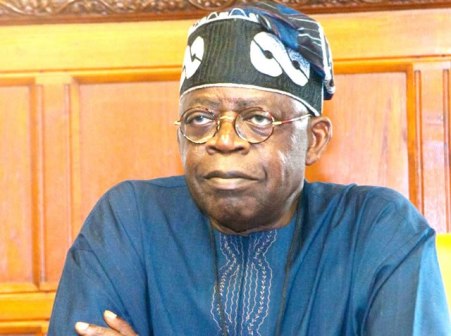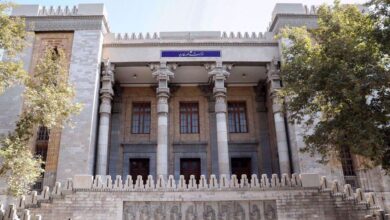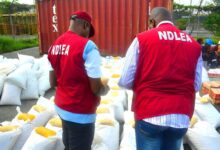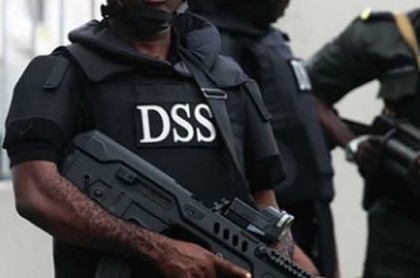ASSET OR NOT: What CIA, FBI, DEA said about Tinubu’s status in latest Ruling

(Published 13th Nov, 2024 by FIJ.ng)
By Daniel Ojukwu
It has been 31 years since President Bola Tinubu forfeited $460,000 to the city of Illinois in the United States after an investigation linked him to drug trafficking activities. The ghosts of that event continue to haunt him.
In April 2023, the All Progressives Congress (APC) told the presidential election tribunal that Tinubu, their candidate and president-elect at the time, was of no interest to the US government as the 1993 civil forfeiture case was not against him but against the money they said was found in 10 bank accounts opened in his name.
At that time, Nigerian journalist David Hundeyin and Plainsite publisher Aaron Greenspan had worked up a Freedom of Information Act (FOIA) request to the Federal Bureau of Investigation (FBI), Central Intelligence Agency (CIA) and Drug Enforcement Agency (DEA). The latest development from this move happened on Monday.
The agencies told a US District Court in Columbia that they could not fully disclose Tinubu’s level of cooperation with the CIA. The DEA stated that Nigerians did not have a right to know what Tinubu was up to.
“Human sources can be expected to furnish information to the CIA only when they are confident the CIA can and will do everything in its power to prevent the public disclosure of their cooperation. In the case of a person who has been cooperating with the CIA, official confirmation of that cooperation could cause the targets to take retaliatory action against that person or against their family or friends,” the CIA stated.
Similarly, the DEA added, “We oppose full, unredacted disclosure of the DEA’s Bola Tinubu heroin trafficking investigation records because we believe that while Nigerians have a right to be informed about what their government is up to, they do not have a right to know what their president is up to.”
READ ALSO: ‘CSU Has a History’ — Ex-Student Gives Reasons There’s No Proof of Tinubu’s Graduation
DID AGENCIES HAVE TINUBU’S RECORDS?

The FBI, CIA, and DEA relied on US FOIA exemptions to refuse to provide information on the existence of Tinubu’s records. Both the FBI and DEA relied on FOIA exemptions 6 and 7, while the CIA relied on exemptions 1 and 3.
Exemption 6 of the FOIA prohibits the disclosure of records that would be an unwarranted invasion of personal privacy, while Exemption 7 covers records or information compiled for law enforcement purposes. This exemption has several subparts, including those that relate to interfering with enforcement proceedings, depriving someone of a fair trial and disclosing the identity of a confidential source.
Exemption 1 relates to the preservation of national security, while Exemption 3 allows the government to withhold records that are “specifically exempted from disclosure” by statutes other than FOIA.
Beyond these exemptions, the three agencies relied on a 2023 ruling to say they did not need to check their records to even file an exemption.
Monday’s publication read, “In such cases, ‘an agency can issue a Glomar response, refusing to confirm or deny its possession of responsive documents.’ Importantly, an agency need not search its records before invoking Glomar.’ Schaerr v. Dep’t of Just., 69 F.4th 924, 928 (D.C. Cir. 2023).”
A Glomar response is a judicially created way for federal agencies to refuse to confirm or deny the existence of requested records in response to a Freedom of Information Act (FOIA) request.
THE FORFEITURE QUESTION
Since Hundeyin and Greenspan filed the request in March 2023, a question that has begged an answer is ‘What was Tinubu’s role in the 1993 drug trafficking investigation?’
His political party said the case was not against him, but the agencies did not say they had no business with Tinubu.
Things took a new twist on April 4, 2023, when the agencies sent a response with a heavily redacted response and no mention of Tinubu in the body.
Already, two former Chief Justices of Nigeria (CJN) and the current CJN had all agreed forfeiture meant punishment for a crime.
The date was January 17, 2014, and the case was Mohammed Abacha V Federal Republic of Nigeria (2014).
Abacha was challenging an appeal court judgment delivered on April 18, 2005. The Federal Government, through the Attorney-General of the Federation (AGF), had charged Abacha to court for the offences of conspiracy, receiving stolen property, dishonesty and concealing stolen money, all pursuant to sections 97(i), 317 and 319 of the Penal Code.
READ ALSO: FACT-CHECK: What CSU Documents Really Say About Tinubu’s Studentship, Age, Gender
After the High Court and the Appeal Court found Abacha guilty, justices Ariwoola, Onnoghen, Muhammad Muntaka-Coomassie, Fabiyi, Suleiman Galadima, Nwali Ngwuta and Kudirat Kekere-Ekun had the final word on the matter.
Ariwoola and Onnoghen served as CJNs in the past, and Kekere-Ekun is Nigeria’s current CJN.
During that Supreme Court hearing, Abacha argued that he forfeited sums in compliance with a decree and not as a punishment for committing a crime. Ariwoola and the other judges disagreed.
https://fij.ng/article/flashback-the-day-cjn-ariwoola-ruled-that-forfeiture-means-punishment-for-crime/
Arowoola’s ruling read:
The whole purpose of this ad hominem legislation, as clearly stated in Section 1 of the Decree, was to recover from the persons named therein properties and monies acquired corruptly and illegally by them. Bearing in mind that in interpreting a statute, the court must avoid absurdity it is necessary to juxtapose the term ‘forfeiture’ with ‘indemnity’ to ascertain the intention of the lawmaker. Black’s Law Dictionary, 8th edition at page 677 defines ‘forfeiture’ thus:
The right of an injured party to claim reimbursement for its loss, damage or liability from a person who has such a duty…
‘Indemnity’ and ‘forfeiture’ are clearly diametrically opposed to one another. A person who has forfeited property on the basis of a crime cannot be entitled to indemnity. Forfeiture is a form of punishment. There is no indemnity in our criminal procedure.
The divestiture of property without compensation.
The loss of a right, privilege or property because of a crime, breach of obligation or neglect of duty.” It goes on to say ‘title is instantaneously transferred to another, such as the govt., a corporation or a private person’.
Therefore forfeiture connotes punishment for a crime committed and its effect is instantaneous. ‘Indemnity’ is defined at page 784 (supra) as:
A duty to make good any loss, damage or liability incurred by another.
BUT WHAT DOES THE AGENCIES’ REFUSAL IMPLY?
By refusing to confirm or deny any involvement with Tinubu, all three agencies have left the questions unanswered.
One may imply from the responses that he is or is not involved with the US intelligence community as a source or collaborator, but one would not be able to substantiate their position with the FOIA exemption responses.
Effectively, what the FBI, CIA and DEA are saying is that the Nigerian president could be a human source who might have furnished information to the CIA confident that the agency will do everything in its power to prevent the public disclosure of their level of cooperation.
With exceptions of headline dressing and photos









